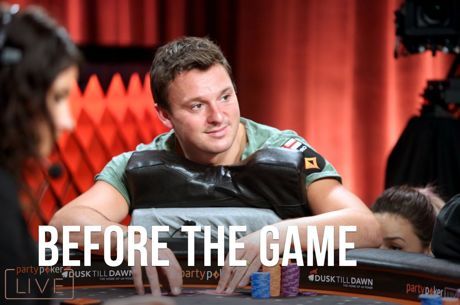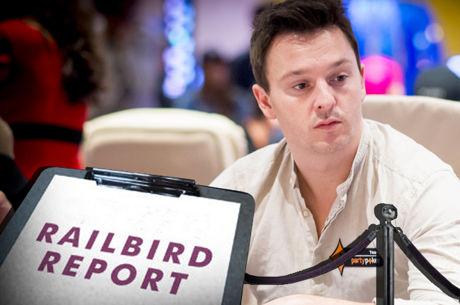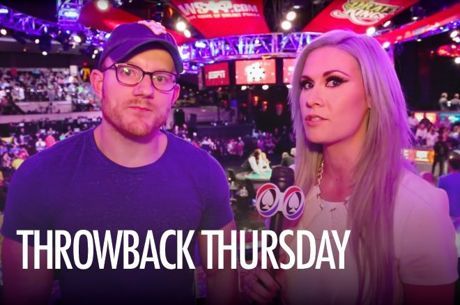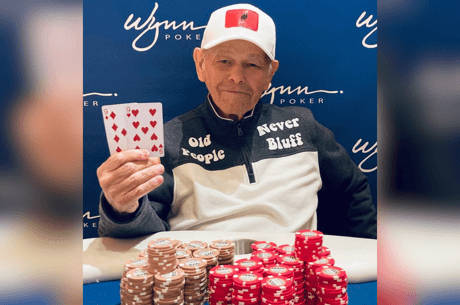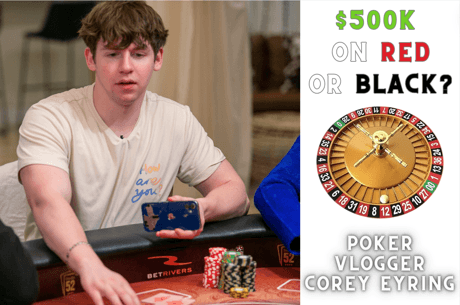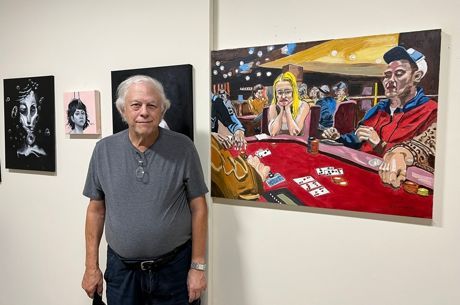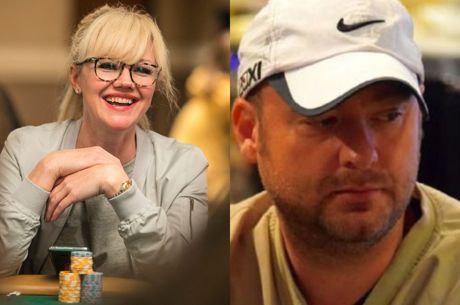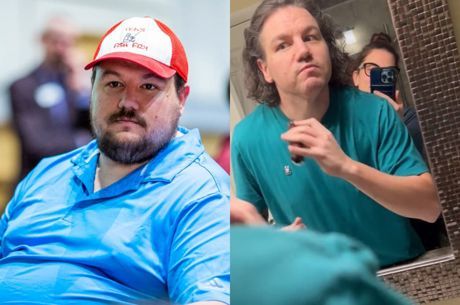Before the Game: Sam Trickett (Part Two)
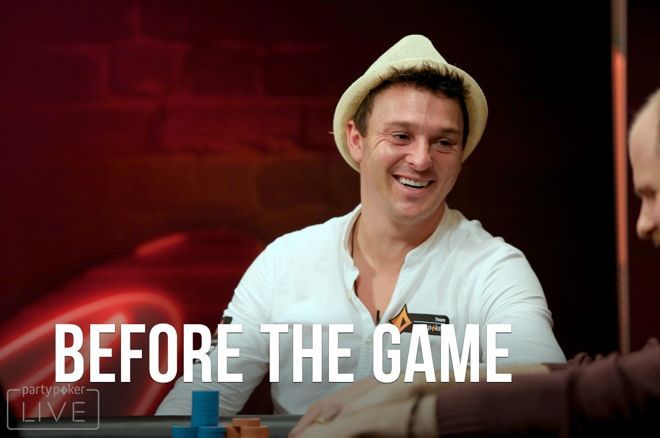
Table Of Contents
In Part One, we left a young Sam Trickett who was on poker probation. An enforced ban on playing had been imposed on him by his bank manager and his father.
Eventually, though, the pull of poker took Trickett back to the tables. Soon he would learn that sometimes, you have to lose it all (multiple times) before success can stick.
A Powerful Draw
Poker was perceived as Trickett’s weakness to those around him, but to the young man himself, it was what made him tick. But it was putting quite the riff between him and his loved ones. Sam's father had prohibited him from playing anymore online after having to bail him out of his online poker debts on multiple occasions.
“I went to go up on the computer one day, because it was upstairs in the family office," Trickett said. "My dad had written a paper sign that said, ‘Fuck off, Sam,’ because he knew I was ready to sneak up.
“I loved the money you could win, and I ignored everyone. I just thought I was better than the players I was playing against. I was good at learning where I went wrong and not doing it again. It was a simpler game back then. If you learned from your mistakes quicker than others, you’d do better.”
“I loved the money you could win, and I ignored everyone. I just thought I was better than the players I was playing against."
Trickett, newly solvent from building up another float of £5,000, quit his job, told his boss that he was going to be a professional poker player, and was literally laughed out of the place. No one believed he had what it took to be a professional at what they saw as a gambling problem.
“It was difficult to do something when every single person that you might look up to, your boss, your bank manager, your dad, and friends are all telling you not to do it and that there are no winners. The scaffolder guy I looked up to told me I was a fucking idiot. It’s hard to believe that everyone’s wrong and you can do it. For so long, my dad - who doesn’t gamble and always wants stability - just wanted me to be safe.”
Trickett knew that his father and others wanted the best for him, but his persistence — or maybe stubbornness — kept him chasing the dream and thinking he ultimately knew what was best for himself.
"It’s the thing I’m probably most proud of - sticking at poker when everyone told me not to, because it did work out."
He believed deep down that he had what it took, and was willing to put in the work necessary to succeed.
“If you put enough effort into it and you’re willing to learn from your mistakes then you can do it. I think everyone telling me not to do it was motivation, too.”
First Heater
Trickett did learn from his early mistakes and built his roll up to £20,000 after profiting from a couple of £300 side events in the UK. With that money, he went to Las Vegas to see if he could parlay it into more. He played some cash games and bracelet events, including a $5,000 buy-in 6-Handed tournament.
“For me, it was a test to play in the World Series in one of the hardest events. I came fourth and went out with kings against sixes on the final table. I was really unlucky not to do better. I got a quarter of a million dollars.”
"It’s hard to believe that everyone’s wrong and you can do it."
Trickett’s luck had turned. Suddenly, everything was coming up gold. It seemed he couldn’t lose.
“I won the $1k Monday a week later playing online from Las Vegas for another $80k, then I flew home, peaking, and won the GUKPT Luton which was a real goal of mine.”
The Grosvenor UK Poker Tour was considered a prestigious event in Britain at the time and Trickett was so sure of his ability that he even bet on himself.
“I bet on myself to win at 30/1 beforehand and went and won it. I’d had a run of three big scores and had half a million dollars. I thought I was unstoppable.”
Road to Rock Bottom
As Trickett was about to learn, however, pride comes before a fall. And it was a spectacular plummet to the ground from cloud nine. Armed with newfound confidence, he started playing in games much too big for his bankroll, including stakes of $400/$800 against Gus Hansen and company.
“I tried to play in bigger games against better players and blasted it off. I was spending money in nightclubs, and I bled money down to my last $150,000."
“I tried to play in bigger games against better players and blasted it off."
With his nest egg quickly evaporating, Trickett decided to get a house to have something to show for his winnings.
"I had to put £30,000 as a deposit, and the paperwork took a week to be put through. In that week, I dusted off another $100,000.”
Somehow, Trickett had burned through his winnings. His father, who still hadn’t felt safe even when Trickett was half a million up, was right. The lifestyle he’d started to enjoy could no longer be sustained.
“I didn’t get the house. I was going out drinking, and everyone thought I was loaded. I was too ashamed to tell them that I’d lost it all, so I had to pretend. I was on the cover of magazines, for God’s sake. I was going out all the time and my missus left me.”
A Lifeline
Trickett’s success had gone as quickly as it came. But then he was offered a lifeline, albeit one which would require a lot of hard work, and a relocation over 8,000 miles away. It was time to share his poker knowledge with others.
“James Bord offered me a job teaching people how to play. He saw the potential because of my results. But I had to move to Cape Town in South Africa. I had no other options. I went out there and that’s when it all started going right.”
For six months, Trickett worked long days teaching younger men the basics of the game, fielding questions and spinning on an office chair to cope with queries while others played poker for money. Working for just $2,000 a month, Trickett could only play outside of his office hours. The new restrictions provided motivation to not blast off again.
"If I hadn’t gone broke, I would never have won what I have.”
“I thought, ‘I never want to be back here again,’ and I learned my lesson the hard way. The next time I got money after winning results, I was a lot better with it. I respect money a lot more now."
Trickett admits he wasn’t ready for the success he got so early in his career at the age of 21.
“I’ve had my ups and downs along the way, but I needed that to happen. If I hadn’t gone broke, I would never have won what I have.”
While he was on his stint of teaching the game, Trickett found a helpful teacher of his own.
“After I got bust, it was a smack in the face. I wasn’t as good as I thought I was, and I needed to do some work on my game. In the office, working, I was watching Phil Galfond’s videos. Just the way he spoke about poker helped. It was the way he spoke about it and broke it down. It got me thinking about poker in the right way.”
Success Breeds Complacency
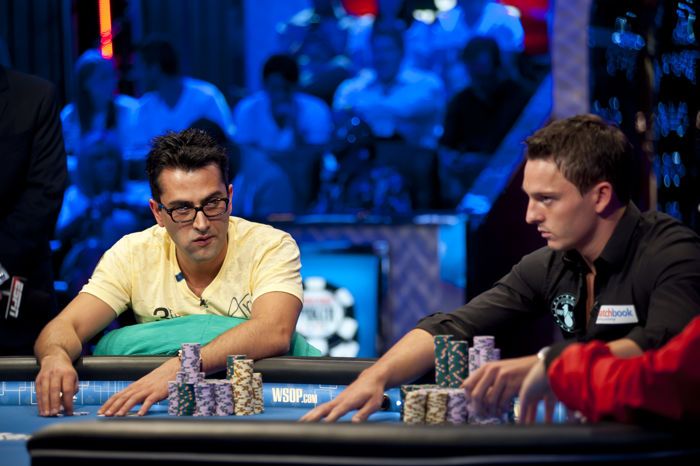
For the talented young poker player that came from a modest background, pride became his downfall. But it was his ability to learn from mistakes and bounce back that kept Trickett in the game and set him up for longterm success.
“I’d had results at the Aussie Millions and all these events, but it was only after One Drop that dad could breathe. He was always worried about me. He still does now, because when I was younger I used to brag about my results. But I lost my ego a little bit and realized it’s cheap to talk numbers.”
"After One Drop, I got complacent and didn’t do work on my game at all. I was going out partying, enjoying my money.”
When Trickett earned $10 million for finishing runner-up to Antonio Esfandiari in the $1 million buy-in One Drop in 2012, he felt like he had made it. Driven by ego at the time, garnering the respect from peers in the game meant even more than money, and he got both.
“I don’t know if it was my ego, but success was when people told me I was the best player in the world. I wasn’t, there were better players on the internet, but although I’d never have said it myself, I wanted people to say it. For some reason, that was important to me, it was my motivation.”
In addition to results, Trickett started also getting the acknowledgments he so craved, but you might think that having Patrik Antonius call you the best no-limit player in the world would have a different effect than it did.
“I looked up to Patrik - he was probably the person I looked up to the most because he wasn’t a usual poker player. He had a wife, he seemed like a stable person and he was someone to look up to. Then Jason Mercier said I was the best cash game player in the world. It was almost like I’d instantly lost motivation. For the players to say it, that’s what I was aiming for the whole time.”
Trickett had finally reached the top, and it squashed the need he had previously felt to work hard.
“I had everything I’d set out to achieve; money, cars, a house. Looking back, I wasn’t the best in the world. But at the time, the results came with it, I was winning everything. I didn’t really play for three years. After One Drop, I got complacent and didn’t do work on my game at all. I was going out partying, enjoying my money.”
Shifting Priorities
Though he got away with it back then, Trickett knows the days of not having to work very hard to stay ahead in poker were a thing of the past.
“You have no choice but to take it seriously these days. I used to be sloppy, not push every marginal edge. Now, with videos and content out, everyone’s good. You have to be ruthless, after every dollar, or you lose money.”
"I'm more content and if that's led to me being a bit less competitive, I'm happy with that transition."
Ironically, success proved demotivating for Trickett once he notched the biggest score of his career. But time away from the game and shifting priorities brought Trickett some needed stability and direction. One of those game changers was meeting the woman who would change his mind about never settling down, and he committed to her.
"When I met Mieke, I had a responsibility. There was no point going out and I found my love for poker again."
Now a married man, Trickett is enjoying a different kind of lifestyle and has found a new peace.
"I like being a part of the partypoker team and I’m really enjoying my poker," said Trickett. "I value close relationships with good people and live in the moment. I'm more content and if that's led to me being a bit less competitive, I'm happy with that transition. I no longer strive for material possessions."
Maybe the boy who grew up so obsessed with success has realized that the best success is living well. Trickett, who had to lose it all to win it all, will always remember how he once threw it all away. It’s by keeping hold of those memories that he doesn’t go back to who he was... Before the Game.
In this Series
- 1 Before the Game: Sam Razavi the Stage Performer
- 2 Before the Game: Steve Watts the Professional Football Player
- 3 Before the Game: Roberto Romanello the Restaurant Worker (Part One)
- 4 Before the Game: Roberto Romanello (Part Two)
- 5 Before the Game: Mike Sexton the Paratrooper (Part One)
- 6 Before the Game: Mike Sexton (Part Two)
- 7 Neil Channing - Before the Game (Part One)
- 8 Neil Channing - Before the Game (Part Two)
- 9 Before the Game: Erik Seidel the Trader (Part One)
- 10 Before the Game: Erik Seidel the Trader (Part Two)
- 11 Before the Game: Sorel Mizzi the Young Army Reservist (Part One)
- 12 Before the Game: Sorel Mizzi the Telemarketer (Part Two)
- 13 Before the Game: Sam Trickett the Footballer (Part One)
- 14 Before the Game: Sam Trickett (Part Two)
- 15 Before the Game: Bryn Kenney the Magic Player (Part One)
- 16 Before the Game: Bryn Kenney (Part Two)
- 17 Before the Game: Toby Lewis the Sports Nut (Part One)
- 18 Before the Game: Toby Lewis the Sports Nut (Part Two)
- 19 Before the Game: Matt Salsberg the TV Writer (Part One)
- 20 Matt Salsberg: Before the Game (Part Two)
- 21 Before the Game: Jeff Gross the College Soccer Star (Part One)
- 22 Before the Game: Jeff Gross (Part Two)
- 23 Before the Game: Martin Jacobson the Chef (Part One)
- 24 Before the Game: Martin Jacobson the Chef (Part Two)
- 25 Before the Game: Scott Davies the Lawyer
- 26 Before the Game: Chris Moorman the Business Student (Part One)
- 27 Before the Game: Chris Moorman The College Dropout (Part Two)
- 28 Before the Game: Padraig Parkinson the Carnival Host (Part One)
- 29 Before the Game: Padraig Parkinson the Carnival Host (Part Two)

